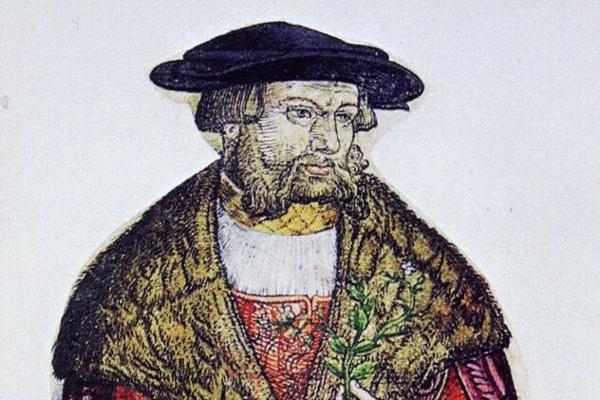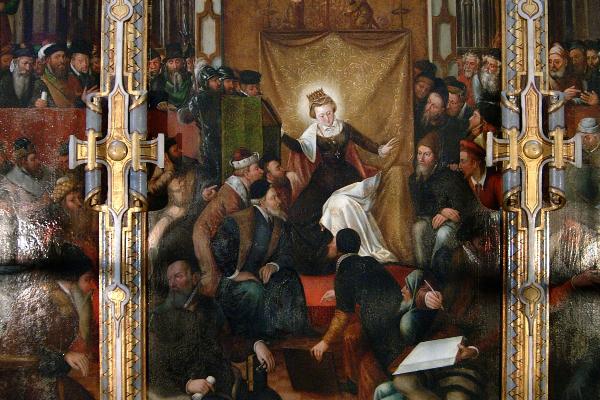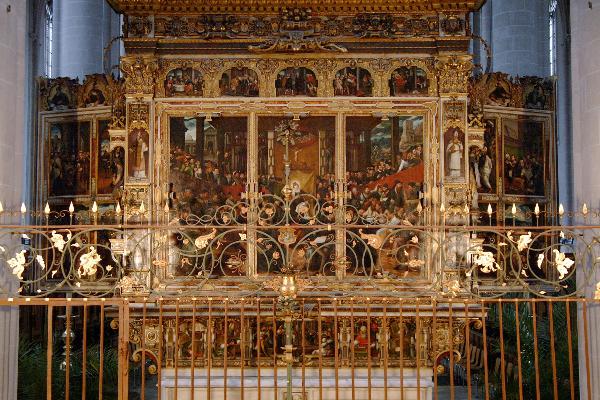In the early 1520s the Dukes of Bavaria had decided to remain true to Catholicism and they subsequently pursued a strictly anti-Reformationist policy. Its effects were soon felt at Ingolstadt University, whose Vice-Chancellor Johannes Eck was Martin Luther’s most prominent theological opponent. Eck was among the first to critically examine Luther‘s theological positions and he recognized the gravity of the threat they presented to the prevailing ecclesiastical order. During their famous debate in Leipzig in 1519, Eck succeeded in eliciting clearly heretical statements from Luther. In the following year, he personally took part in the preparations for the trial of Luther for heresy in Rome. While there, he made a significant contribution to a Papal Bull that threatened Luther and his supporters with excommunication, and did all he could to have it widely published in Germany. However, his commitment to the cause was not entirely selfless.
The theologian Arsacius Seehofer and the botanist Leonhart Fuchs were soon forced to leave the University on confessional grounds. Conversely, Ingolstadt served as a safe haven for Catholics who had fled from areas ruled by Lutheran princes. Among these was Robert Turner, an Englishman who later headed the Georgianum and served as Rector of the University in 1584/85. Professors Vitus Amerbach, Rudolf Clenck, Martin Eisengrein and Friedrich Staphylus also moved to Ingolstadt, after having switched their allegiance to the Reformationist camp for a time.
After the death of Eck in 1543, the University entered a difficult phase. An outbreak of plague forced faculty members to seek refuge in Kelheim and, when the War of the Schmalkaldic League began in 1546, the staff of the University again dispersed. The Faculty of Theology was understaffed, which was a particularly serious problem, as the Dukes of Bavaria needed well trained priests to boost the position of the Catholic faith.
Duke Wilhelm IV therefore entered into negotiations with the Jesuit Order, which agreed to send theologians to Ingolstadt. For the first time, professorships at a German university were allocated to Jesuits. The Order would become the intellectual powerhouse of the Counter-Reformation, and their work in Ingolstadt undoubtedly helped them to attain this status. Moreover, the decision to avail of their services had repercussions far beyond the borders of Bavaria. By 1648 Jesuit professors were at work in 17 of the 18 Catholic universities in the Holy Roman Empire.



